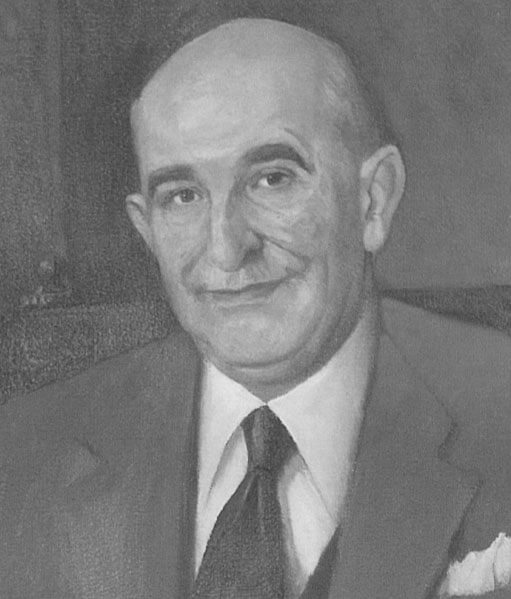THE IMPACT OF THE INDUSTRIAL REVOLUTION
In the early 19th century, the Industrial Revolution transformed the economies of North America, Europe, and the Mediterranean. The use of coal as an energy source, the emergence of mechanization with the development of the steam engine and the locomotive, and advancements in instant communication with the advent of the telegraph, stimulated transformations while facilitating global trade growth.
Simultaneously, financial institutions evolved from mere repositories safeguarding valuables into companies that traded currencies and precious metals, issued promissory notes, and financed a wide range of projects. It was in this historical context that the Safra family began laying the foundations of the contemporary financial system in the Middle East, promoting and financing the emerging industrial infrastructure, transportation, communication, and the trade of raw materials, agricultural products, and manufactured goods among nations.
SAFRA FAMILY ORIGIN AND THE GOLD TRADITION
During this period of great transformation, one of the key trade centers in the Mediterranean emerged, the city of Aleppo, historically known as 'the city where the East and West meet.' Aleppo, the home of the Safra family at the time, is located in northwestern Syria and served as a trading hub for merchants and the flow of goods between Mediterranean countries. The cosmopolitan-minded family financed the region's commercial caravans and traded different currencies, such as the Austrian 'thaler,' the Ottoman Empire's 'para,' Venice's 'zecchino,' and precious metals like silver and gold. In this context, the Safra family thrived and grew so prominent, that their surname became the Arabic word for the color of gold: Safra.
SAFRA FRÈRES ET CIE. AND ALEPPO
Amidst this backdrop, the Safra family founded Safra Frères Et Cie in 1840, with its headquarters in Aleppo and offices in the Ottoman capital, Istanbul, and the Egyptian city of Alexandria. The financial institution, which quickly gained fame and prestige in Mediterranean countries, counted the brothers Ezra and Elie Safra among its partners, the latter being Jacob Safra's father, who would become the family's patriarch. Jacob was born in 1891, and at the age of 13, after the premature loss of his father, went to live with his uncle Ezra, who was in charge of Safra Frères. During his adolescence, while his more experienced family members relied on conversion tables, Jacob was already recognized as a brilliant young person, capable of mentally calculating the complex conversion of different currencies into their equivalents in gold and silver. This ability brought young Safra appreciation and renown among the region's traders. Recognizing his nephew's talent and passion for the family business, Ezra prepared Jacob for a new challenge.

THE SAFRA FAMILY'S BRANCHING OUT
With the collapse of the Ottoman Empire following its defeat in World War I, the trade flow through Aleppo virtually came to a halt. To preserve the family business, Ezra Safra asked his young nephew to establish and manage a new branch of Safra Frères. The chosen city was Beirut, Lebanon, where Jacob, now a partner at his uncle's business, arrived in search of new markets and opportunities.
Since his arrival in Beirut, Jacob had aspirations of building his own business, and shortly after that, in 1920, he decided to open a financial institution, the Jacob E. Safra Bank. Leveraging the reputation of its founder as a discreet and talented financier, the new company prospered quickly, becoming the preferred financial institution for many wealthy traders in the region. They entrusted Safra with managing their personal and business finances, relying on Jacob's efficiency and discretion in handling their affairs. In this environment, Jacob Safra raised his family of eight children, including those who would become famous financiers in the global market in the years to come. These children would become pillars of the Jewish community worldwide. Among them were the brothers Edmond, Moise, and Joseph Safra. The establishment of the State of Israel and the beginning of conflicts between the new country and its neighbors made the situation for Jews in the Middle East more unstable. Although Lebanon remained reasonably safe for Jews in the region, Jacob Safra decided to leave and move to Latin America. In 1952, Jacob Safra settled in São Paulo, a city that was experiencing a period of prosperity and political stability, and which had a sizable Syrian-Lebanese Jewish community.
INTERNATIONAL EXPANSION IN THE 20TH CENTURY
With the patriarch's passing in 1963, Edmond, Moise, and Joseph Safra took over the family operation and continued the family's tradition and expertise in financial markets. The brothers elevated the family business to new heights, building a global financial empire in the Americas, Europe, Asia, and the Middle East. Joseph Safra, the father of Alberto Safra, was celebrated by the market as one of the greatest financiers of his generation. He was known as a risk-averse investor, a relentless worker, and for completing operations that became 'legends' in the financial market.
A LEGACY IN THE MAKING: A NEW BRANCH
To preserve this legacy of generations, Joseph Safra directed his children to work in finance while instilling the importance of philanthropy across various social areas. After completing his studies at Wharton, Alberto Safra was invited by his father to work in the family business, where he quickly demonstrated the talent inherited from his ancestors in finance. He exhibited a constant pursuit of returns and the ability to identify and respond to risks with agility. Today, much like his predecessors, Alberto Safra uses his financial institution, ASA, to continue his family's tradition in global finance, generating value across generations.
